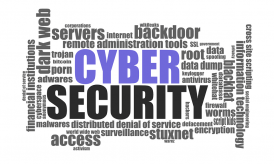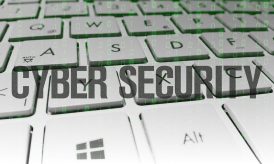If you’re not a techie, you must get confused and/or scared by all the internet and PC security jargon being thrown at you all the time by online blogs and newspapers.

This article tries to present a digest overview of what you, as an end user without any background in IT education, need to know.
Internet Security:
The foremost thing you need to know about internet security is to never trust a stranger. You’re downloading some app from a flashy looking website? Be sure to run the app through your antivirus before installing it. You’re required to share your password/email/birth date/full name or some other personal information on a shady website? It’s not worth the dough you’re getting.
Update your internet browser. Whether you’re using Google Chrome, Mozilla Firefox, Internet Explorer or some other browser, keep it updated. Most of the browser updates include safeguard against latest internet security threats, so it’s better to be safe than to be sorry.
PC Security:
Things you need to do as a PC user:
Never login as an administrator
The only time when you need to login as administrator is when you have to install some software which requires administrative privileges. Most of the time, you can use your computer as a normal user. Not using administrative account can prevent a lot of harm done by malware.
Use a strong password:
Using a strong password ensures that any malware which tries to access your PC can not guess the password. This is especially true for administrative accounts; all such accounts must be secured by strong passwords. Also, whenever you are prompted for administrative password, check for whichever program is requesting for password. Do not enter password for unknown programs, or programs you do not remember installing. Chances are that the prompt is from some malware.
A strong password is at least 10 characters long, and does not consist of digits entirely. Also, be sure to use uncommon phrases or words, and do not share your PC password with anyone online.
Update your Operating System and software packages regularly
Windows and other operating systems provide regular security updates for any new types of malwares or other kinds of attacks, so make sure that your computer is configured to download updates. Also, non-operating system software packages, such as media players, internet browsers, games, chat clients etc also require regular updates. Most of the software packages are configured to prompt you if updates are available, but you can check for updates using the help menu or by using some Personal Software Inspector. Note that PSIs do not check updates for all software packages installed on your PC.
Install a good anti-virus software package
Having a good antivirus package can really pay you back in terms of PC security (and for some packages, internet security also). Microsoft offers two antivirus packages for Windows, Windows Defender and Microsoft Security Essentials. Microsoft Security Essentials provides regular updates to virus definitions, and thus keeps up with every changing PC security environment. Also, it can provide real time protection and scanning of running processes, as well as scanning of Disk Drives and Removable Media.
















Gloria Philips your shared points are very important to keep safe our PC and internet browsing because now a days the most important thing in online business is to secure our systems and browsing. Before two months one of my friend was using hotspot shield on her system i logged in on my yahoo email and check my mails. After a day i found my account hacked and when i recovered it there was nothing from my previous emails. Then i realized that these kinds of activities are very harmful.
Thanks you like it and found useful.
Cyber security can be an overwhelming subject for beginners, but there are a lot of tutorials on the internet. Having an updated anti-virus, using a different password for each site and not trusting everyone on the internet are the basic steps you have to follow in order to be cyber protected.